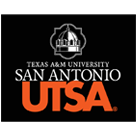Document Types
Individual Presentation
Location
UTSA Downtown- La Villita
Start Date
2-23-2024 3:00 PM
End Date
2-23-2024 3:30 PM
Abstract
With the number of Spanish heritage classes and bilingual students being on the rise (Beaudrie, Amezcua & Loza, 2021), there is a pressing need to incorporate pedagogical practices that foster inclusivity and challenge dominant language ideologies (Holguín-Mendoza, 2018; Leeman, 2012; Lacorte & Magro, 2021; inter alia). This necessity is particularly dire at the K-12 level, where teachers oftentimes lack the training to deconstruct their own –as well as their students’– linguistic beliefs to offer a more socially-conscious instruction (Hudgens-Henderson & Hackman, 2021).
Following the work of Beaudrie et al. (2021) and Wilson & Marcin (2022), this study examines the preexisting linguistic beliefs of 35 participants (20 pre and in-service Spanish teachers and 15 undergraduate students) and explores their development during a 15-week course focused on Spanish dialectal variation. A wide array of data sources (students’ reading annotations, weekly reflections, and results from a survey administered at the start and the end of the course) will be presented to show how those enrolled increased their awareness about key issues in the study of language and communication (i.e. linguistic prescriptivism, dialectal discrimination and stigmatization or raciolinguistic ideologies).
Overall, the aim of this presentation is twofold. On the one hand, it seeks to highlight the importance of integrating critical language awareness (CLA) in SHL classes –at the K-12 level and beyond– as well as in Spanish teaching preparation programs. On the other hand, it is designed to provide practical examples of how to effectively assess students’ and teachers’ beliefs regarding language variation and diversity in the Spanish classroom to ultimately foster their CLA. [260 words]
(see attached document for a PDF version)
Recommended Citation
Perez-Cortes, Silvia, "“Su español es incorrecto”: Challenging Spanish teachers’ and students’ linguistic beliefs through CLA in a dialectology course" (2024). 11th National Symposium on Spanish as a Heritage Language. 27.
https://digitalcommons.tamusa.edu/heritage_spanish/SCHEDULE/Friday/27
Included in
Bilingual, Multilingual, and Multicultural Education Commons, Language and Literacy Education Commons, Latin American Languages and Societies Commons, Modern Languages Commons, Spanish Linguistics Commons
“Su español es incorrecto”: Challenging Spanish teachers’ and students’ linguistic beliefs through CLA in a dialectology course
UTSA Downtown- La Villita
With the number of Spanish heritage classes and bilingual students being on the rise (Beaudrie, Amezcua & Loza, 2021), there is a pressing need to incorporate pedagogical practices that foster inclusivity and challenge dominant language ideologies (Holguín-Mendoza, 2018; Leeman, 2012; Lacorte & Magro, 2021; inter alia). This necessity is particularly dire at the K-12 level, where teachers oftentimes lack the training to deconstruct their own –as well as their students’– linguistic beliefs to offer a more socially-conscious instruction (Hudgens-Henderson & Hackman, 2021).
Following the work of Beaudrie et al. (2021) and Wilson & Marcin (2022), this study examines the preexisting linguistic beliefs of 35 participants (20 pre and in-service Spanish teachers and 15 undergraduate students) and explores their development during a 15-week course focused on Spanish dialectal variation. A wide array of data sources (students’ reading annotations, weekly reflections, and results from a survey administered at the start and the end of the course) will be presented to show how those enrolled increased their awareness about key issues in the study of language and communication (i.e. linguistic prescriptivism, dialectal discrimination and stigmatization or raciolinguistic ideologies).
Overall, the aim of this presentation is twofold. On the one hand, it seeks to highlight the importance of integrating critical language awareness (CLA) in SHL classes –at the K-12 level and beyond– as well as in Spanish teaching preparation programs. On the other hand, it is designed to provide practical examples of how to effectively assess students’ and teachers’ beliefs regarding language variation and diversity in the Spanish classroom to ultimately foster their CLA. [260 words]
(see attached document for a PDF version)


Comments
See document attached for other components of the abstract (learning objectives, references...)